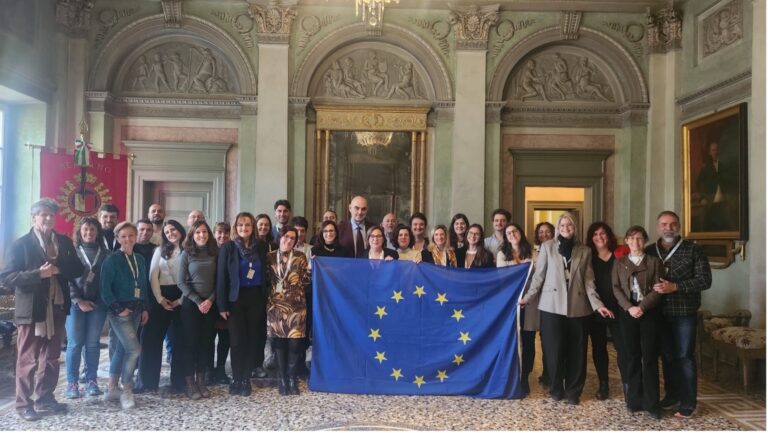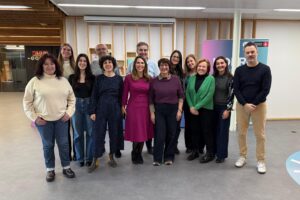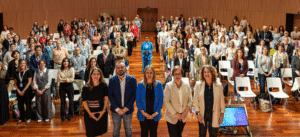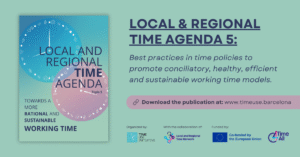On March 20-21, the City of Bergamo hosted a delegation of 21 partners from 9 European countries for the Kick-Off Meeting (the first partnership meeting) of the Time4All 2.0 project. The delegation included 18 local or regional governments and three non-governmental organisations committed to promoting the right to time within their territories and across Europe.
Time4All 2.0 two-year initiative (2025-2026) that will include a series of exchanges and workshops in partner cities. Its main objective is to raise awareness about time policies and promote a balanced and sustainable use of daily time, engaging citizens and cities in discussions on the right to time. The project targets 1,800 participants, focusing on young people and women, who are disproportionately affected time poverty. This term refers to having less than two-and-a-half hours of personal time daily after accounting for work, caregiving, and essential activities like eating or sleeping. In Europe, this phenomenon impacts between 20% and 30% of the population
Funded by the European Union through the EACEA Agency (European Education and Culture Executive Agency) with a grant of approximately €247,000, Time4All 2.0 seeks to explore the value of time organization while developing policies that enhance health, equality, productivity, sustainability, and civic participation. The project is part of the Citizens, Equality, Rights and Values (CERV) programme and builds upon the achievements of its predecessor, Time4All project, implemented in 2023-2024.
The network of participating cities continues to grow through Time4All 2.0, fostering dialogue and exchanging best practices across Europe. The project will facilitate international exchanges among cities in areas where time is a critical indicator of well-being—such as democracy or climate mitigation and adaptation. Ultimately, it aims to strengthen the global network of cities working on time policies under the Local and Regional Governments Time Network.
World Capital of Time Policies Handover
During the Time4All 2.0 launch event, Strasbourg (World Capital of Time Policies for 2024) officially handed over its title to Bogotá (World Capital of Time Policies for 2025). This title, promoted by the Network since 2022 to highlight the flagship time policies of its member cities, began with Barcelona, continued with Bolzano and Strasbourg, and now Bogotá will further develop the right to time as the Network’s leading representative. It is the first Latin American city to assume this role.
Bogotá has been recognized for its commitment to equity and the advancement of the right to time, particularly through policies that have improved women’s rights and the use of time in caregiving tasks. This designation will enable Bogotá to host an upcoming Global Summit on the issue, consolidating its leadership in this field.
First practical exchange on local time policies: Bergamo’s “Scuole Aperte” project
During the meeting on March 20, Marzia Marchesi, Bergamo’s Councillor for Educational Services, alongside representatives from Consorzio SOLCO Città Aperta and CVS Bergamo, presented the Scuole Aperte (Open Schools) program to European partners. The initiative focuses on two main objectives: strengthening schools as hubs for cultural, social, and civic engagement to foster active citizenship and promoting work-life balance by extending school hours for non-formal learning activities. This approach aligns with the concept of the “15-minute city” positioning schools as accessible community spaces that address local needs inclusively.
The Scuole Aperte program exemplifies effective collaboration between the public and private sectors. Its success stems from partnerships among schools, associations, parent committees, municipal services, and local communities. By directly responding to citizens’ needs through constructive dialogue among stakeholders, the initiative has transformed schools into neighbourhood hubs where children can engage in activities beyond formal education while parents gain time for other pursuits. This model underscores how public policies can enhance community well-being through innovative and inclusive practices.
The Kick-Off Meeting of Time4All 2.0 represents a crucial opportunity to launch a path of European cooperation on time policies, to make cities increasingly attentive to the well-being of their citizens.






